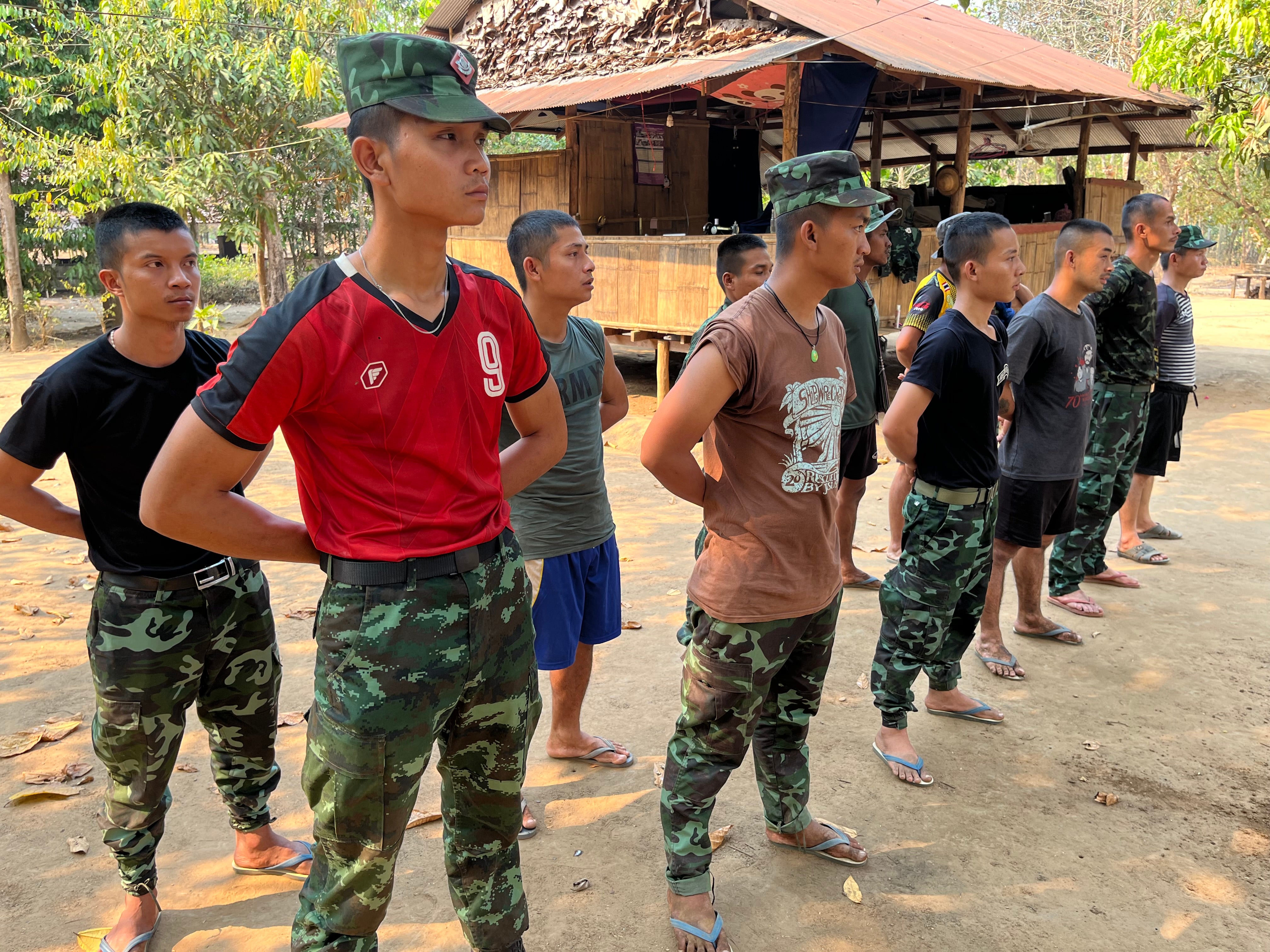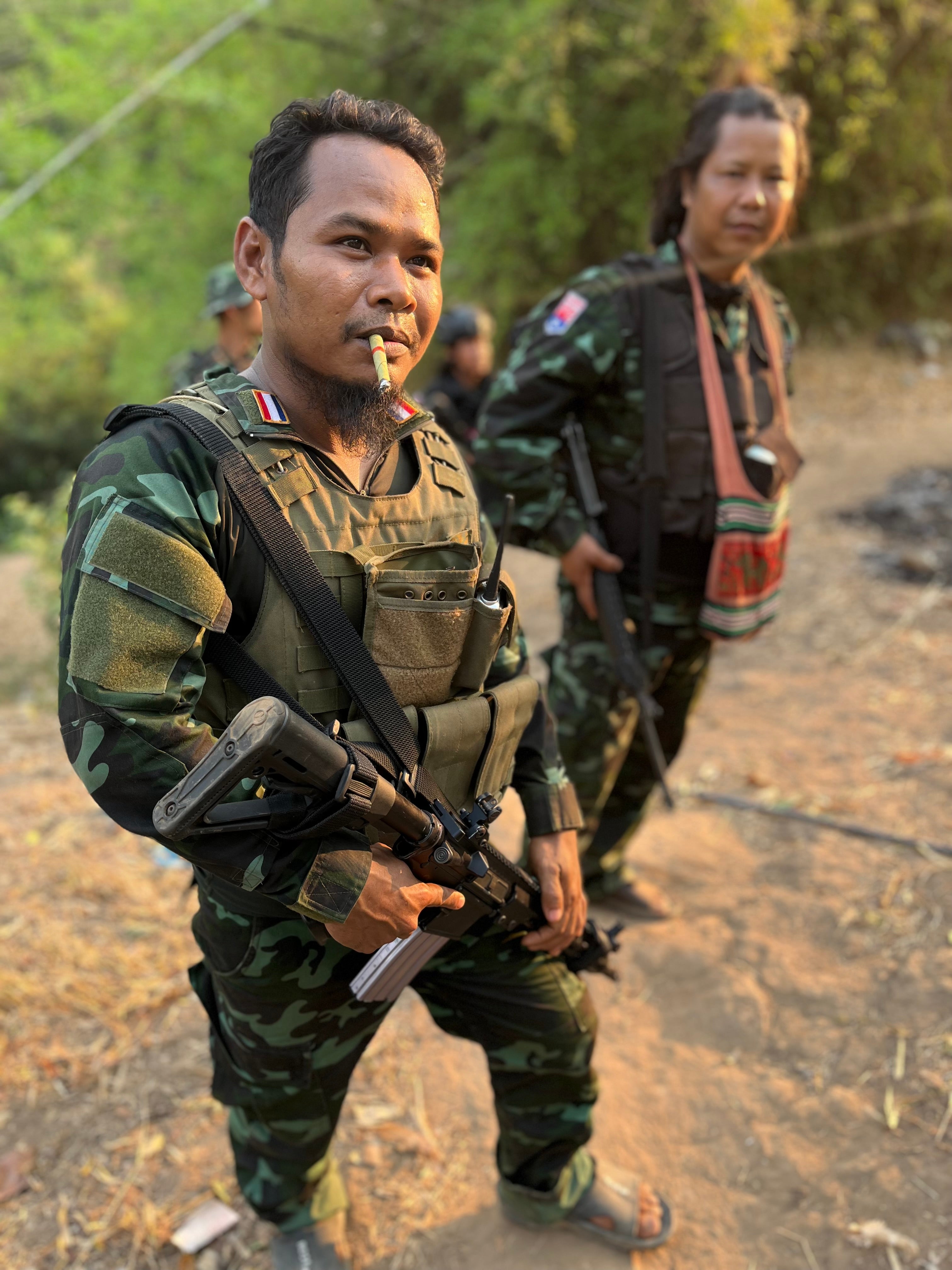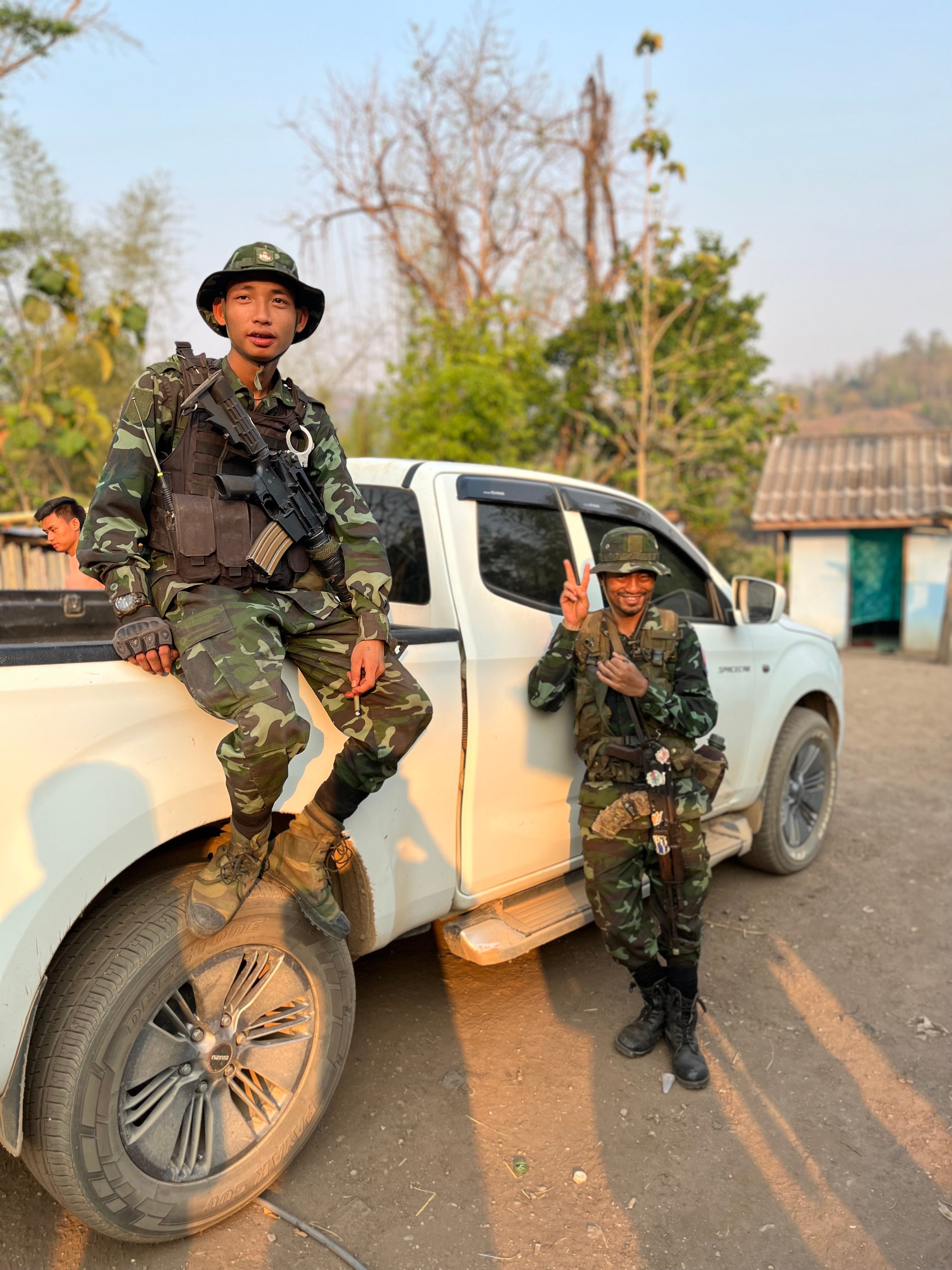Gen Z guerillas are fighting in a brutal civil war that everyone is ignoring
Secunder Kermani gains rare access to meet some of the young people battling Myanmar’s military junta


Your support helps us to tell the story
From reproductive rights to climate change to Big Tech, The Independent is on the ground when the story is developing. Whether it's investigating the financials of Elon Musk's pro-Trump PAC or producing our latest documentary, 'The A Word', which shines a light on the American women fighting for reproductive rights, we know how important it is to parse out the facts from the messaging.
At such a critical moment in US history, we need reporters on the ground. Your donation allows us to keep sending journalists to speak to both sides of the story.
The Independent is trusted by Americans across the entire political spectrum. And unlike many other quality news outlets, we choose not to lock Americans out of our reporting and analysis with paywalls. We believe quality journalism should be available to everyone, paid for by those who can afford it.
Your support makes all the difference.Away from the eyes of the world, a brutal civil war is intensifying in Myanmar. Thousands of civilians have been killed, including more than 150 in a devastating airstrike last week.
The repressive military regime that seized power two years ago doesn’t allow journalists to report freely inside the country, as it attempts to suppress coverage, but following painstaking negotiations with local contacts, we travelled secretly into rebel-controlled territory in order to document the conflict. Only a handful of other international journalists have been able to make the journey: young men and women who were once peaceful protesters are now part of an armed rebellion, sacrificing their lives in the hope of being able to restore democracy. We were given rare access to the Generation Z guerrillas who have been on the frontlines.
Not far from the banks of the idyllic Salween River, which divides Thailand and Myanmar, a white pick-up truck is speeding towards us. The men inside look like professional soldiers, dressed in camouflage uniforms and clutching automatic weapons. But one is a former baker, while another used to be an engineer. In fact, most of them had never even held a gun until a military coup in 2021.
They’re part of a new unit, Cobra Column, that’s at the forefront of the fight against the ruling junta. A sprawling resistance movement already controls large rural swathes of Myanmar; now, groups like Cobra Column are launching raids into military-controlled towns.
“We must fight until we defeat the dictatorship,” Ta Kaung Bwar, a former construction worker, tells me defiantly. But the rebels are outgunned by Myanmar’s powerful army, which has dominated the country for much of its post-colonial life. “We can take over towns but we can’t hold them,” says another of the volunteers. “If we set up a base there, they use airstrikes.”
Myanmar’s military has become increasingly reliant on its air force, supplied by long-time allies Russia and China, to counter the rebels. The consequences for civilians have been horrific. Last week, at least 168 people were killed in an attack on a village. The victims included 30 children.
“We need guns and anti-aircraft weapons,” pleads Ta Kaung Bwar. “We want the international community to help us.” That help, however, has not been forthcoming, and the rebels are forced to buy weapons on the black market – or make their own. They have no defence against jets and helicopters. As Western nations remain focused on the conflict in Ukraine, the civil war in Myanmar has been largely ignored by the outside world.

The unrest began when the military seized power in February 2021, bringing to an end a brief period of civilian rule. Millions of civilians took to the streets in protest, but hundreds were killed in a crackdown. Ta Kaung Bwar was among the crowds in the city of Yangon. “I carried around 30 bodies of dead and injured people myself,” he tells me. It was that brutality that pushed him, and thousands of others, to leave their homes and join an armed rebellion.
The men are now experienced fighters, but talk wistfully of their former lives. Ko Hin, the former baker, shows me old photos in which he is posing in a Manchester United football shirt, but adds gravely: “I made the decision to come here carefully. I will fight until I die.”
The idealism of the young generation waging this war shines through the brutality of the conflict. Cobra Column even has its own heavy-metal anthem celebrating the struggle.
But violence in Myanmar is deep-rooted. Along the country’s borders, ethnic minority militias have been waging their own insurgencies for decades, seeking greater autonomy. It’s these ethnic armies that have given sanctuary and military training to the new fighters.

The fresh recruits include members of the ethnic Bamar majority population, which has traditionally dominated the army and the government. The alliance is unprecedented in its scale, but there’s still a legacy of mistrust. We visit the jungle headquarters of the Karen National Liberation Army (KNLA), the ethnic group that has been battling the military for longer than anyone else – and whose hardened fighters lead Cobra Column. “The main thing is to end the dictatorship,” one senior general tells me, but he cautions that there must be genuine equality between the country’s different communities in the future.
For now, the bloodshed in Myanmar only looks to be getting worse. Close to 1.5 million people have been forced to flee their homes during the past two years, while around 3,500 civilians have been killed. We visit a secret clinic treating injured rebels, where the beds are full of young men with amputated limbs, wounded in attacks by the military or while trying to manufacture makeshift explosives.
Among the patients is a young teenage recruit recovering from a gunshot wound to the chest. “Charlie”, not his real name, joined the resistance as a 17-year-old high-school student, lying about his age. He was shot on his second ever foray into battle, but is eager to return to the frontline to avenge his friends whom he saw die next to him. “I still want to fight,” he says with a steely determination.
Secunder Kermani is foreign affairs correspondent for Channel 4 News
Join our commenting forum
Join thought-provoking conversations, follow other Independent readers and see their replies
Comments